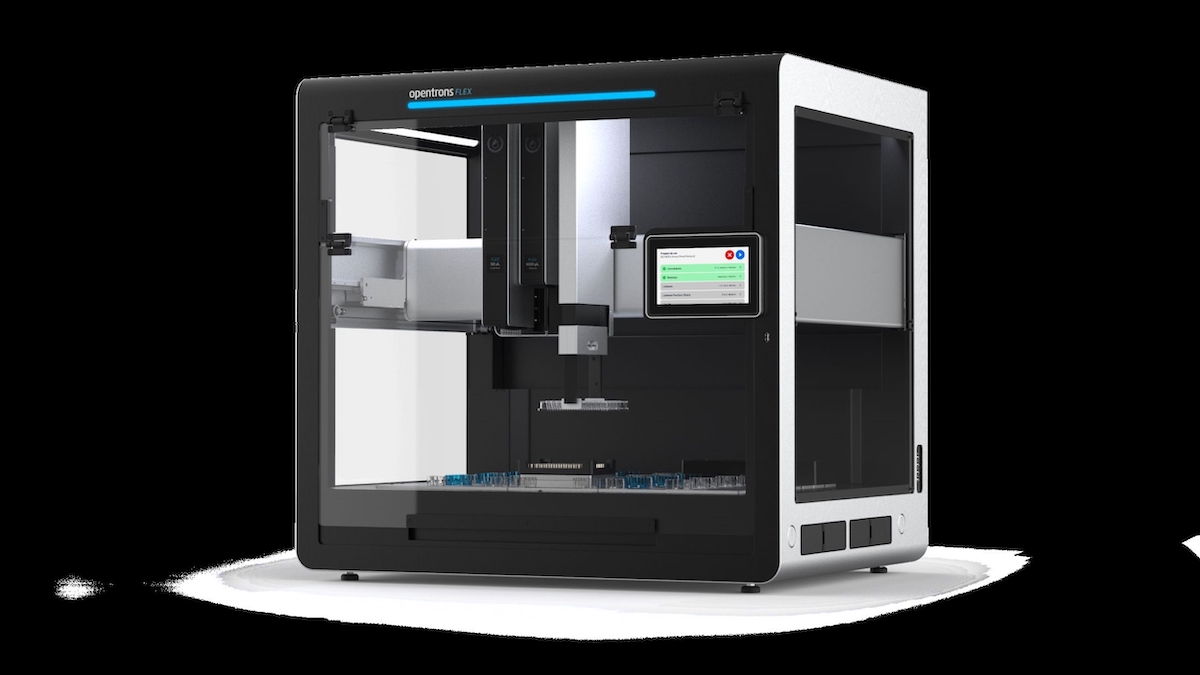Channels
Special Offers & Promotions
Sharing the tools of lab automation

Opentrons guides Lab Innovations’ visitors into the new era of laboratory work
Laboratory automation is undergoing a profound transformation, driven by advancements in throughput, democratisation and artificial intelligence (AI). Here, James Atwood, general manager at laboratory automation solutions provider Opentrons Labworks Inc., Lab Innovations 2024 exhibitor, explores the trends that are reshaping research and diagnostics in the life sciences. These developments promise to enhance both the scale and scope of scientific discovery.
Enhancing throughput with robotics
In life sciences, particularly in genomics and drug discovery, the demand for high-throughput technologies has never been more critical. Robotics has emerged as an indispensable asset in laboratories, dramatically increasing the number of experiments conducted and discoveries made. For instance, in genomic sequencing, automation significantly reduces the costs and labour associated with sample preparation, which traditionally exceeds the operational costs of the sequencers themselves.
By transitioning from manual to automated processes, laboratories can manage more samples at a faster rate, effectively shifting the bottleneck from manual labour to more efficient automated systems. This leap in throughput accelerates research and enhances data reliability and scalability, which are crucial for major scientific breakthroughs.
Democratising automation
The movement towards democratising automation in the laboratory sector aims to make advanced technologies accessible to a broader range of institutions, regardless of their size or funding. This trend is essential for fostering a diverse and innovative scientific community capable of addressing complex global challenges.
By levelling the playing field, smaller laboratories and educational institutions can engage in cutting-edge research, employing robotics to enhance efficiency and creativity in scientific endeavours. As automation becomes more mainstream, it also prepares the next generation of scientists by embedding essential automation skills early in educational curricula, thus bridging the skills gap in the rapidly evolving biotech landscape.
The role of artificial intelligence in lab automation
AI is poised to further transform laboratory automation by integrating with robotic systems to enhance their efficiency and flexibility. Using generative AI and large language models, scientists can now articulate experimental protocols in plain language, which the AI interprets to generate precise automated procedures.
This technology streamlines the creation of experimental protocols, optimises parameters and troubleshoots potential issues in real-time, tailoring processes to meet specific experimental needs. AI-driven automation extends beyond efficiency; it empowers researchers to explore new scientific questions, pushing the boundaries of what can be achieved in the laboratory.
What’s next
The future of laboratory automation is rich with possibilities. As robotics and AI continue to evolve, their integration into laboratory settings is expected to deepen, making sophisticated experiments more reproducible and accessible. The ongoing trend towards higher throughput, coupled with the democratisation of technology and the application of AI, suggests a future where laboratory work is more efficient, inclusive and innovative.
This evolution in lab automation stands to significantly accelerate the pace of scientific research and discovery, promising rapid advancements in healthcare and drug development.
The integration of throughput enhancement, democratisation and AI in laboratory automation is setting the stage for the next phase of scientific research. With these tools, scientists can tackle previously insurmountable challenges, paving the way for significant advancements in life sciences and beyond. At Lab Innovations 2024, Opentrons will showcase its tools for innovation and demonstrate how it incorporates these trends from stand J115.
About Lab Innovations
Lab Innovations has fast become the UK’s must-attend event for the entire laboratory industry. Supported by some of the UK’s top science institutions, it is a key event for powering the business of science.
The show floor is bursting with innovations from more than 160 leading scientific suppliers and manufacturers showcasing the latest laboratory developments and equipment. Exhibitors present the most cutting-edge technology applicable to a plethora of industries including life sciences, pharmaceuticals, academia, healthcare, chemical, food & drink, cleanroom and more.
About Opentrons Labworks, Inc.
Opentrons Labworks, Inc., a disruptive life science company and the current market leader in entry-level lab automation, accelerates innovation in research and healthcare through its integrated lab platform, which includes business units Opentrons Robotics and Neochromosome. Opentrons has raised over $200 million in funding and achieved unicorn status based on its robotics platforms.
The Opentrons Flex is Opentrons’ newest generation of liquid-handling lab robots, offering open-source accessibility and compatibility with generative AI tools. Opentrons Robotics provides thousands of institutions with flexible, easy-to-use lab robots, automating R&D operations and making robotics, a vast open-source library accessible to life sciences researchers worldwide. Opentrons is used in labs at the top 20 academic universities in the US and 14 of 15 leading global biopharmaceutical companies.
Media Partners


